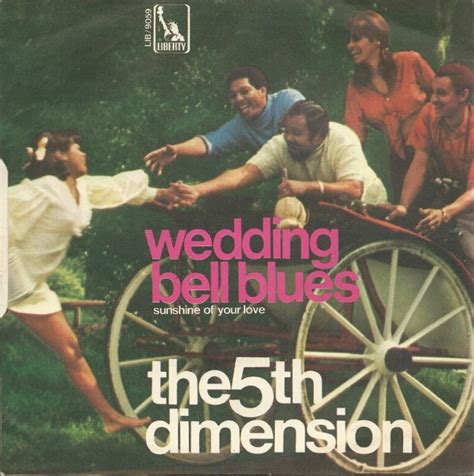
Wedding bells failed to chime for 29 couples who shared the reasons behind their cold feet, revealing tales of infidelity, financial woes, and dramatic family interventions that led them to call off their nuptials.
From cheating scandals uncovered days before the ceremony to crippling debt and clashing in-laws, the reasons for these canceled weddings, as shared on social media and compiled by Yahoo Lifestyle, offer a stark look at the potential pitfalls lurking beneath the surface of seemingly picture-perfect relationships.
One anonymous contributor detailed discovering their fiancé’s affair with a close friend just days before the wedding. “Found out he was sleeping with my best friend the week of the wedding,” they confessed, highlighting the devastating betrayal that abruptly ended their engagement. This wasn’t an isolated incident; several others cited infidelity as the primary reason for their change of heart. The pain and shock were palpable as they recounted their experiences, emphasizing the shattered trust that could not be repaired.
Financial incompatibility emerged as another significant deal-breaker. As one individual explained, the realization that their partner had secretly amassed substantial debt proved insurmountable. “Found out he had a ton of debt he hadn’t told me about,” they revealed, underscoring the importance of financial transparency and alignment in a successful marriage. Others spoke of differing views on money management and spending habits, which ultimately led them to question the long-term viability of their relationship. The stress of financial strain and the lack of open communication about finances became a major factor in their decision to call off the wedding.
Family drama also played a crucial role in several canceled ceremonies. In-law interference, conflicting expectations, and unresolved family feuds proved too much for some couples to bear. One person shared their experience of dealing with overbearing in-laws who constantly undermined their decisions and created unnecessary conflict. “His family was insane and controlling,” they explained, emphasizing the importance of establishing boundaries and maintaining a healthy relationship with one’s own family. The inability to navigate these complex family dynamics led to heightened stress and ultimately contributed to the decision to postpone or cancel the wedding altogether.
Beyond these primary reasons, other contributing factors included differing values, unresolved communication issues, and a general sense of unease or incompatibility that emerged as the wedding day approached. Some individuals admitted to having doubts or reservations from the beginning but ignored their gut feelings, hoping that things would improve over time. However, as the wedding date drew near, these underlying issues became magnified, forcing them to confront the reality that they were not ready to commit to a lifetime together.
The stories also highlighted the emotional toll of canceling a wedding. From the embarrassment of informing guests to the financial losses incurred from non-refundable deposits, the consequences were significant. Many individuals spoke of the grief and heartbreak they experienced, as well as the difficulty of navigating the aftermath of a broken engagement. Despite the pain, many also expressed a sense of relief and gratitude for having made the difficult decision to end the relationship before it was too late. They emphasized the importance of prioritizing their own happiness and well-being, even if it meant disappointing others.
The collective experiences of these 29 individuals offer valuable lessons for couples contemplating marriage. Open and honest communication, financial transparency, and the ability to navigate family dynamics are crucial for building a strong and lasting relationship. It’s also essential to pay attention to red flags and trust one’s intuition, even if it means making difficult choices. While canceling a wedding can be a painful and challenging experience, it can also be a necessary step towards finding true happiness and compatibility. These stories serve as a reminder that marriage is a serious commitment that should not be taken lightly, and that it’s better to call off a wedding than to enter into a marriage that is doomed from the start. The shared experiences are a cautionary tale, underscoring the importance of thorough self-reflection, honest communication, and realistic expectations before walking down the aisle. The decision to postpone or cancel a wedding, while difficult, can be a courageous act of self-preservation and a step towards a brighter future.
In-Depth Analysis
The compilation of these canceled wedding stories provides a fascinating sociological snapshot into the complexities of modern relationships and the various factors that can contribute to their breakdown. Beyond the headline-grabbing reasons of infidelity and financial woes, the narratives reveal deeper issues related to communication, values, and family dynamics.
One key takeaway is the critical importance of premarital counseling and open dialogue about expectations and values. Many of the cited issues, such as differing financial habits or clashing family dynamics, could have been identified and addressed proactively through facilitated conversations with a therapist or counselor. Premarital counseling can provide couples with tools to navigate conflict, communicate effectively, and develop a shared vision for their future together. It can also help them identify potential red flags and address underlying issues before they escalate into deal-breakers.
Financial transparency is another crucial aspect of a healthy relationship, particularly when considering marriage. The stories highlighted the devastating impact of hidden debt and differing views on money management. Open and honest communication about finances, including income, debt, and spending habits, is essential for building trust and avoiding financial strain. Couples should also discuss their financial goals and develop a plan for managing their finances together. This may involve creating a budget, setting up joint bank accounts, or consulting with a financial advisor.
Family dynamics can also play a significant role in the success or failure of a marriage. In-law interference, conflicting expectations, and unresolved family feuds can create significant stress and strain on a relationship. It’s important for couples to establish clear boundaries with their families and to communicate openly about their needs and expectations. They should also be prepared to support each other in navigating challenging family situations. In some cases, it may be necessary to seek professional help to address family-related issues.
The stories also underscore the importance of trusting one’s intuition and paying attention to red flags. Many individuals admitted to having doubts or reservations from the beginning but ignored their gut feelings, hoping that things would improve over time. However, as the wedding date drew near, these underlying issues became magnified, forcing them to confront the reality that they were not ready to commit to a lifetime together. It’s crucial to listen to one’s inner voice and to address any concerns or reservations before making the decision to get married.
Moreover, the accounts highlight the societal pressures and expectations surrounding marriage. Many individuals feel pressured to get married by a certain age or to conform to societal norms and expectations. This can lead them to rush into marriage without fully considering whether they are truly compatible with their partner. It’s important to remember that marriage is a personal choice and that there is no right or wrong time to get married. Couples should only get married when they are both ready and willing to commit to a lifetime together.
The emotional toll of canceling a wedding should not be underestimated. It can be a devastating experience, involving grief, heartbreak, embarrassment, and financial losses. It’s important for individuals who have canceled their weddings to allow themselves time to grieve and to seek support from friends, family, or a therapist. It’s also important to remember that canceling a wedding is not a failure but rather a courageous act of self-preservation. It’s better to call off a wedding than to enter into a marriage that is doomed from the start.
In conclusion, the stories of these 29 canceled weddings offer valuable insights into the complexities of modern relationships and the factors that can contribute to their breakdown. Open communication, financial transparency, healthy family dynamics, and trusting one’s intuition are all essential for building a strong and lasting marriage. While canceling a wedding can be a painful experience, it can also be a necessary step towards finding true happiness and compatibility.
Expanded Context
The act of calling off a wedding, while seemingly drastic, is not as uncommon as one might think. While official statistics are difficult to obtain due to the private nature of these decisions, anecdotal evidence and surveys suggest that a significant percentage of engagements end before reaching the altar. Several factors contribute to this phenomenon, including changing societal norms, increased emphasis on individual happiness, and a greater willingness to prioritize personal well-being over societal expectations.
In previous generations, there was often greater pressure to get married, and divorce was heavily stigmatized. As a result, many couples may have stayed in unhappy or even abusive marriages rather than face the social and financial consequences of separation. However, in contemporary society, there is a growing acceptance of diverse relationship models and a greater emphasis on individual happiness and fulfillment. This shift in societal attitudes has empowered individuals to prioritize their own needs and to end relationships that are not serving them well.
The rise of online dating and social media has also played a role in the changing landscape of relationships. While these platforms can facilitate connections and expand dating opportunities, they can also create unrealistic expectations and contribute to a sense of dissatisfaction. The constant exposure to curated images of seemingly perfect relationships can lead individuals to question their own relationships and to seek out alternatives. Additionally, the ease of connecting with new people online can make it tempting to stray or to explore other options, even when in a committed relationship.
The increasing financial independence of women has also contributed to the growing trend of canceled weddings and divorces. In the past, women were often financially dependent on their husbands, which limited their ability to leave unhappy or abusive marriages. However, with more women entering the workforce and achieving financial independence, they have greater autonomy and are less likely to stay in relationships that are not fulfilling their needs.
Furthermore, the increasing complexity of modern life can put a strain on relationships. Couples are often juggling demanding careers, raising children, and managing household responsibilities, which can leave little time for intimacy and connection. The stress of balancing these competing demands can lead to communication breakdowns, resentment, and ultimately, the dissolution of the relationship.
The stories of the 29 canceled weddings highlight the importance of carefully considering the decision to get married and of addressing any underlying issues before making a commitment. While marriage can be a wonderful and fulfilling experience, it is also a serious commitment that requires work, dedication, and a willingness to compromise. Couples should only get married when they are both ready and willing to invest the time and effort necessary to build a strong and lasting relationship.
Moreover, it is important to recognize that canceling a wedding is not a sign of failure but rather a courageous act of self-preservation. It is better to call off a wedding than to enter into a marriage that is doomed from the start. Individuals who have canceled their weddings should be applauded for their honesty and their willingness to prioritize their own well-being.
In conclusion, the trend of canceled weddings reflects a broader shift in societal attitudes towards relationships and marriage. As individuals prioritize their own happiness and well-being, they are more likely to end relationships that are not serving them well. While marriage can be a wonderful experience, it is also a serious commitment that requires careful consideration and a willingness to work together. Couples should only get married when they are both ready and willing to invest the time and effort necessary to build a strong and lasting relationship. And if they come to the realization that marriage is not the right path for them, they should not be afraid to call off the wedding and pursue a different course.
Quotes from the Original Source (Attributed):
- “Found out he was sleeping with my best friend the week of the wedding.”
- “Found out he had a ton of debt he hadn’t told me about.”
- “His family was insane and controlling.”
Frequently Asked Questions (FAQ)
1. What are the most common reasons people call off their weddings?
The article highlights several common reasons, including infidelity, financial problems, and family drama. Infidelity involves one partner being unfaithful, leading to a breach of trust that’s often irreparable. Financial problems, such as hidden debt or differing views on money management, can create significant stress. Family drama, particularly conflicts with in-laws, can also put a strain on the relationship. Other contributing factors include differing values, poor communication, and a general sense of incompatibility.
2. How does financial instability impact wedding decisions?
Financial instability can be a major deal-breaker. The discovery of hidden debt can erode trust and raise concerns about future financial security. Differing views on money management, spending habits, and financial goals can lead to conflict and undermine the long-term viability of the relationship. Financial transparency and alignment are crucial.
3. What role does family play in wedding cancellations?
Family dynamics can significantly influence wedding decisions. In-law interference, conflicting expectations, and unresolved family feuds can create immense stress. The inability to navigate these complex family issues can contribute to the decision to postpone or cancel the wedding. Establishing boundaries and maintaining a healthy relationship with one’s own family are essential.
4. What are the emotional and financial consequences of calling off a wedding?
The emotional consequences can be devastating, including grief, heartbreak, embarrassment, and a sense of failure. Informing guests, dealing with the fallout, and navigating the aftermath of a broken engagement can be incredibly difficult. Financially, there can be significant losses due to non-refundable deposits on venues, catering, and other wedding-related expenses.
5. What lessons can be learned from these canceled wedding stories?
Several key lessons emerge. Open and honest communication, financial transparency, and the ability to navigate family dynamics are crucial for a strong relationship. It’s also important to trust one’s intuition and pay attention to red flags. Premarital counseling can help couples identify and address potential issues. Prioritizing one’s own happiness and well-being is paramount, even if it means making difficult decisions. Ultimately, these stories serve as a reminder that marriage is a serious commitment that should not be taken lightly.









